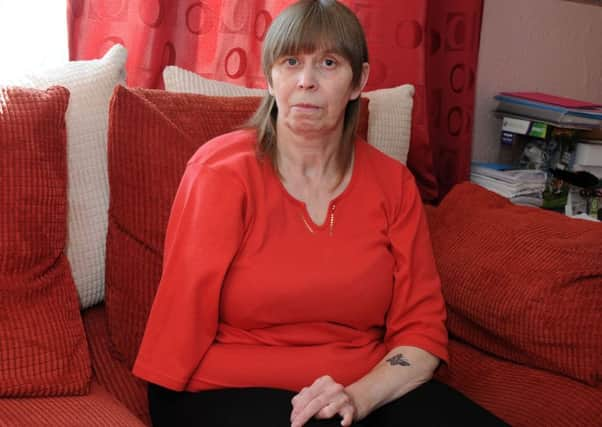Woman gets cash settlement after her arm had to be amputated


By the time Diane Orwin, 57, of Chesterfield, was diagnosed with septicaemia after originally being diagnosed with a gastric illness by a GP from Holywell House Medical Centre, doctors had to amputate her arm.
Ms Orwin was left unable to care for her disabled 21-year-old son Matthew so her eldest son Robert, 35, had to move in until she was discharged and allocated carers.
Advertisement
Hide AdAdvertisement
Hide AdMs Orwin said: “It’s difficult to express just how distressing and frustrating the last six years have been for me.
“I feel that if I had got the care I needed 24 hours before I was eventually admitted, I would probably never have lost my arm.
“Life has changed dramatically now.
“I’m so much more reliant on others than I used to be which has been difficult to adjust to.
“I’d always been very independent relying on Robert only for heavy lifting or cutting the garden hedges.
Advertisement
Hide AdAdvertisement
Hide Ad“But when I lost my arm and was severely ill, he suddenly had to go from being a brother and son to a parent; looking after Matthew around the clock, visiting me daily, keeping the house in order and trying to manage my finances while I was unable to pay my own bills.
“It had a huge impact on all three of us.”
The GP denied the claim and disputed Ms Orwin’s symptoms when she was seen at her home, but after reviewing her treatment the GP’s insurers settled her claim for an undisclosed six-figure sum.
Ms Orwin developed flu-like symptoms on August 29, 2010, with vomiting and by September 1 she was in pain, seeing flashing lights and had developed purple spots on her hands.
The GP visited her home and diagnosed gastritis.
But the following day, Ms Orwin’s condition deteriorated and her right hand and fingers became blue and numb and she was taken to Chesterfield Royal Hospital and diagnosed with septicaemia with a blockage in an artery. She was told on September 3 that she would lose her arm just below the shoulder.
Ms Orwin remained in intensive care for 55 days.
Advertisement
Hide AdAdvertisement
Hide AdDue to the nature of sepsis, also known as septicaemia or blood poisoning, early detection is crucial to prevent long-term damage.
Solicitors Irwin Mitchell investigated her care under a GP at Chesterfield’s Holywell House Medical Centre in August 2010 and secured the financial settlement.
Julianne Moore, of Irwin Mitchell, said: “Patients with sepsis can deteriorate quickly so time is really of the essence when reaching a diagnosis. It is essential that all GPs have an awareness of all the symptoms of sepsis to ensure patients are promptly referred to hospital, diagnosed and treated.”